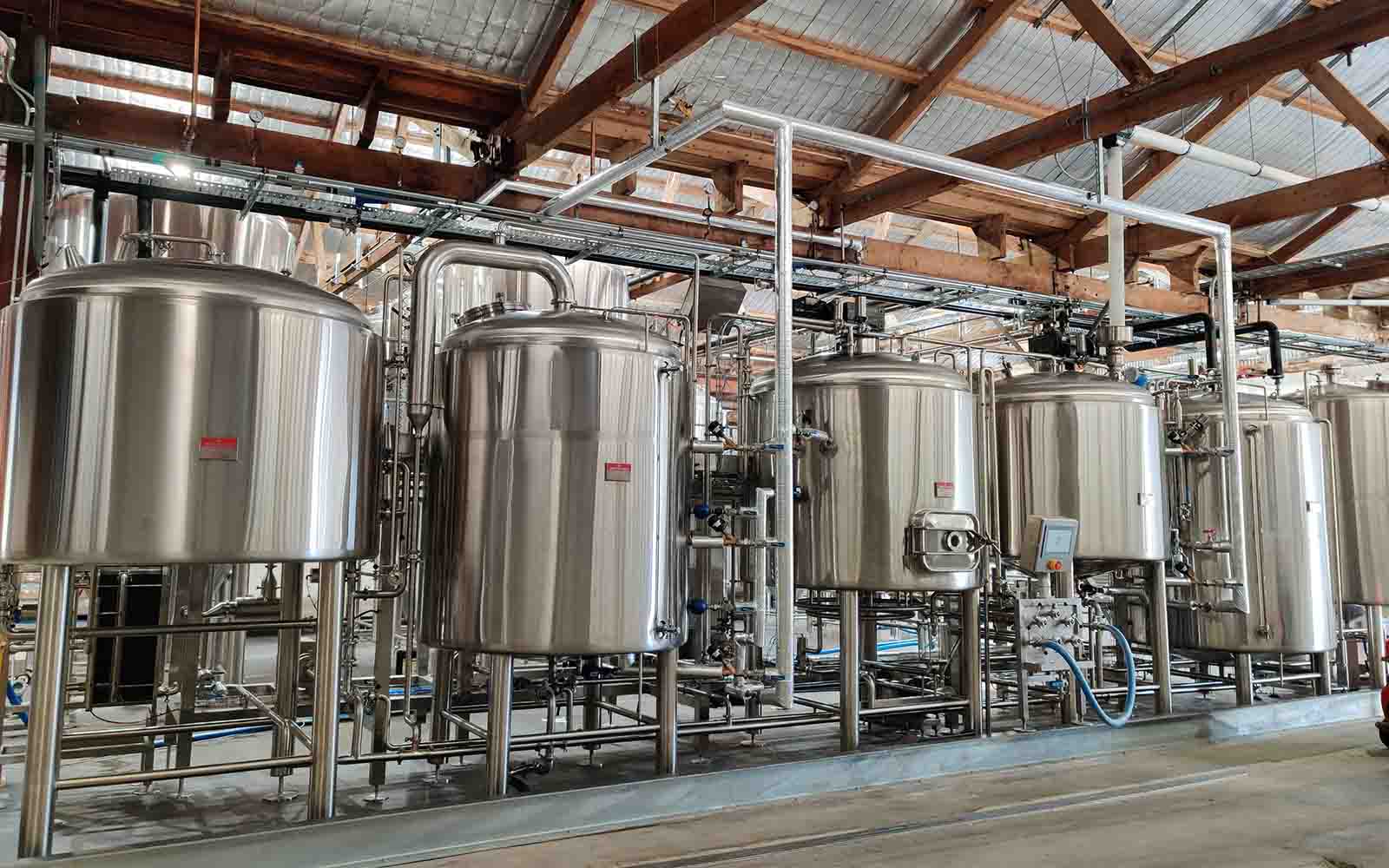Choosing the Best Beer Fermentor for Your Brewery
Overview
Brewing beer is both an art and a science, and one critical piece of equipment at the heart of this process is the beer fermentor. Whether you’re a hobbyist homebrewer or running a commercial brewery, understanding beer fermentors—their purpose, types, and how to choose and use them—is essential to crafting that perfect pint.
What Is a Beer Fermentor?
A beer fermentor is a vessel designed to house the fermentation process of beer. During fermentation, yeast interacts with the sugars in the wort (unfermented beer) to produce alcohol, carbon dioxide, and a range of flavors. Fermentors can be as simple as a glass carboy or as complex as a stainless steel conical fermentor with temperature controls.
Think of a fermentor as the cradle where your beer takes its first breath. It’s the space where the magic happens, transforming a sugary liquid into the golden, frothy beverage we all know and love.
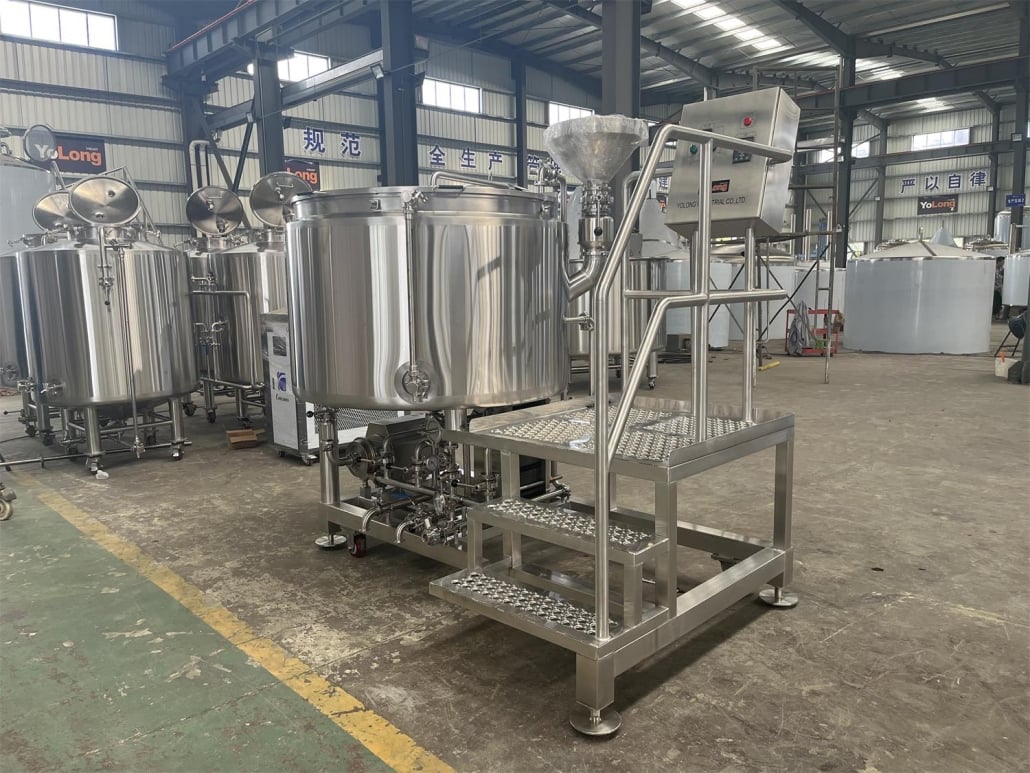
The Role and Importance of a Beer Fermentor
Why is a beer fermentor so critical? Well, without fermentation, you’re left with sweet, flat wort—not beer. The fermentor creates a controlled environment where yeast can thrive and work its magic. Let’s break it down:
- Controlled Environment: The fermentor keeps the beer protected from contaminants like bacteria and wild yeast. This is crucial for achieving consistent quality and flavor.
- Temperature Regulation: Many fermentors come with temperature control systems. Keeping the right temperature ensures that the yeast performs optimally and doesn’t produce off-flavors.
- Oxygen Management: Oxygen is a brewer’s enemy after fermentation begins. A well-sealed fermentor prevents oxidation, preserving the beer’s taste and shelf life.
- Easy Monitoring and Adjustments: Advanced fermentors have features like sampling ports, pressure gauges, and sight glasses, making it easier to monitor and tweak the process.
Types of Beer Fermentors
Not all fermentors are created equal. Here are the main types you’ll encounter, each with its own pros and cons:
1. Plastic Fermentors
Affordable and lightweight, plastic fermentors are a favorite for beginners. However, they’re prone to scratching, which can harbor bacteria over time.
2. Glass Carboys
Glass carboys are non-porous and easy to sanitize. They’re a great choice for homebrewers who prioritize clarity in their beer. The downside? They’re heavy and can shatter if mishandled.
3. Stainless Steel Fermentors
Stainless steel is the gold standard for commercial and serious homebrewers. These fermentors are durable, easy to clean, and often equipped with advanced features like temperature control and pressurization options.
4. Conical Fermentors
Shaped like an inverted cone, these fermentors allow for easy removal of yeast and trub (sediment) during fermentation. They’re ideal for those who want to reuse yeast or improve clarity without transferring beer to a secondary fermentor.
5. Unitanks
Unitanks combine fermentation and conditioning in one vessel, saving space and simplifying the brewing process. They’re commonly used in commercial breweries.
Key Factors When Choosing a Beer Fermentor
| Factor | Details |
|---|---|
| Material | Stainless steel is durable and hygienic; glass offers clarity; plastic is affordable but less durable. |
| Capacity | Match the fermentor size to your batch size. Overfilling can cause spills, while underfilling wastes space. |
| Temperature Control | Essential for precise brewing. Look for fermentors with built-in cooling or heating options. |
| Ease of Cleaning | Choose non-porous materials and designs with easy access for thorough cleaning. |
| Pressure Capability | For advanced techniques like carbonation and transferring beer without exposure to oxygen. |
| Price | Budget-friendly options are great for beginners, but investing in quality pays off in the long run. |
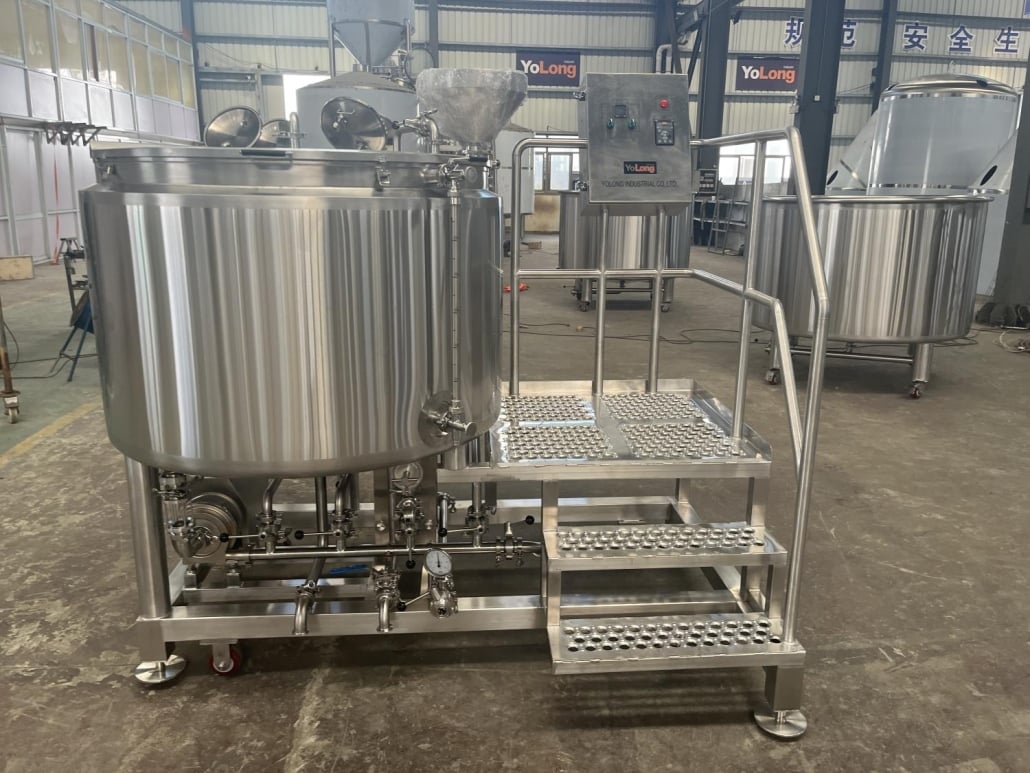
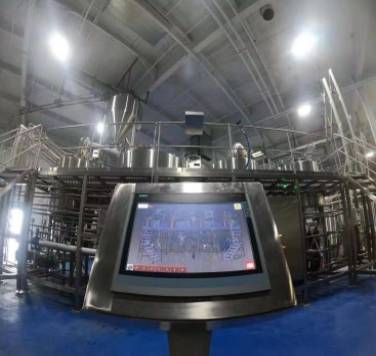
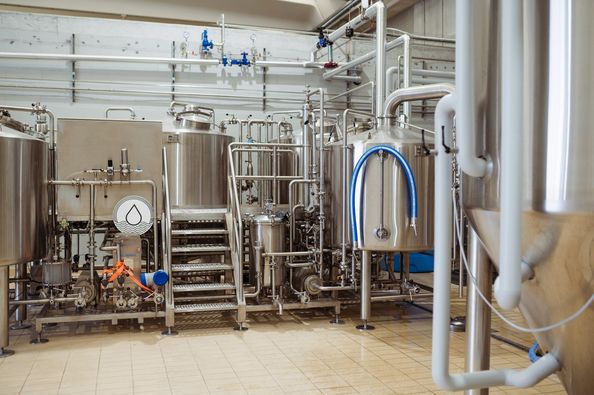
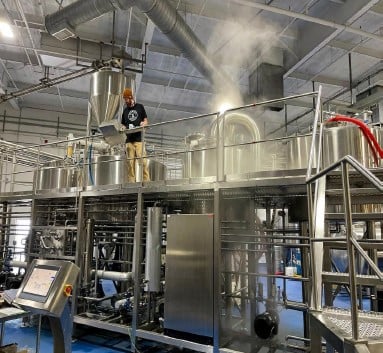
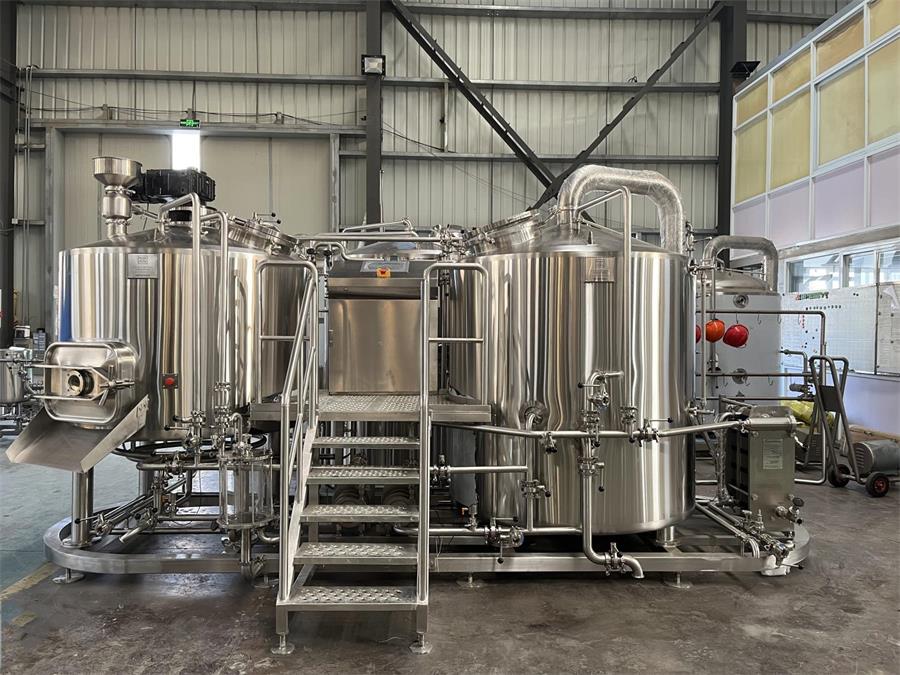
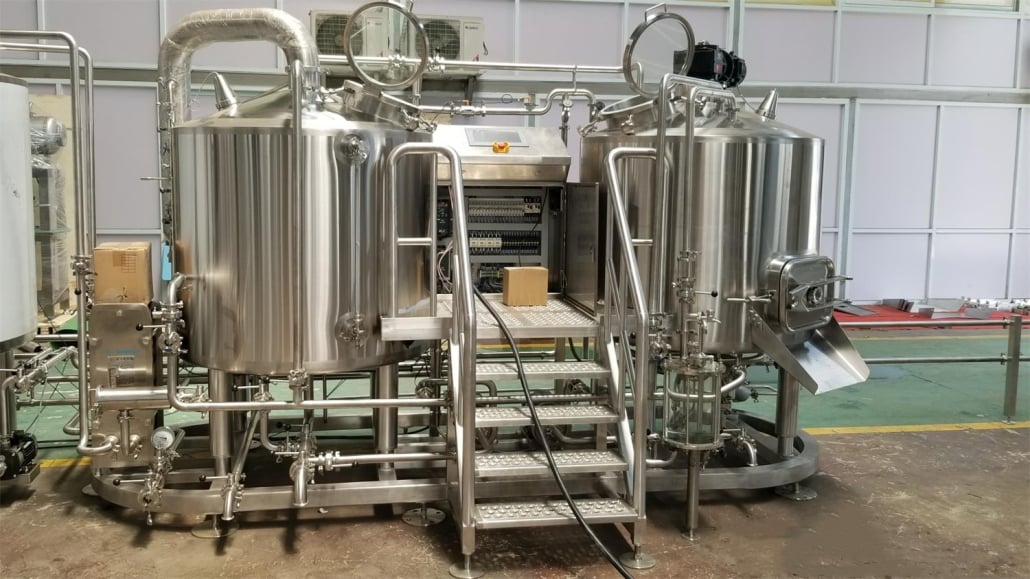
How to Use a Beer Fermentor
Using a beer fermentor isn’t rocket science, but it does require some attention to detail. Here’s a step-by-step guide:
- Clean and Sanitize: Start by thoroughly cleaning and sanitizing your fermentor to prevent contamination.
- Transfer the Wort: Carefully pour or pump the cooled wort into the fermentor, avoiding aeration if possible.
- Pitch the Yeast: Add your yeast—either dry or hydrated—and secure the lid or airlock to allow gas to escape while keeping contaminants out.
- Monitor the Fermentation: Keep an eye on temperature, bubbling activity in the airlock, and gravity readings to track progress.
- Remove Sediment (Optional): If using a conical fermentor, periodically remove trub and yeast to improve clarity.
- Transfer and Bottle: Once fermentation is complete, transfer the beer to a keg or bottles for conditioning.
Best Beer Fermentor Brands or Models
Looking for top-rated beer fermentors? Here are some of the best options:
- Ss Brewtech Chronical Fermenter: A stainless steel conical fermentor with advanced features like a rotatable racking arm.
- FastFerment Conical Fermenter: Affordable and efficient, perfect for small-scale brewers.
- Speidel Plastic Fermenter: Durable plastic design with a wide opening for easy cleaning.
- Blichmann Fermenator: Premium stainless steel unit with innovative features and impeccable build quality.
- Anvil Bucket Fermenter: Budget-friendly yet durable, offering excellent value for money.
Benefits of Using a Quality Beer Fermentor
Investing in a quality beer fermentor comes with numerous advantages:
- Better Flavor Profiles: A reliable fermentor minimizes off-flavors by ensuring a controlled fermentation environment.
- Increased Longevity: High-quality materials like stainless steel last longer and resist wear and tear.
- Ease of Use: Advanced features like temperature control and sampling ports make brewing simpler and more enjoyable.
- Versatility: Many fermentors can handle different beer styles and batch sizes.
- Professional Results: Achieve consistent, high-quality beer every time—whether you’re brewing a crisp lager or a hoppy IPA.
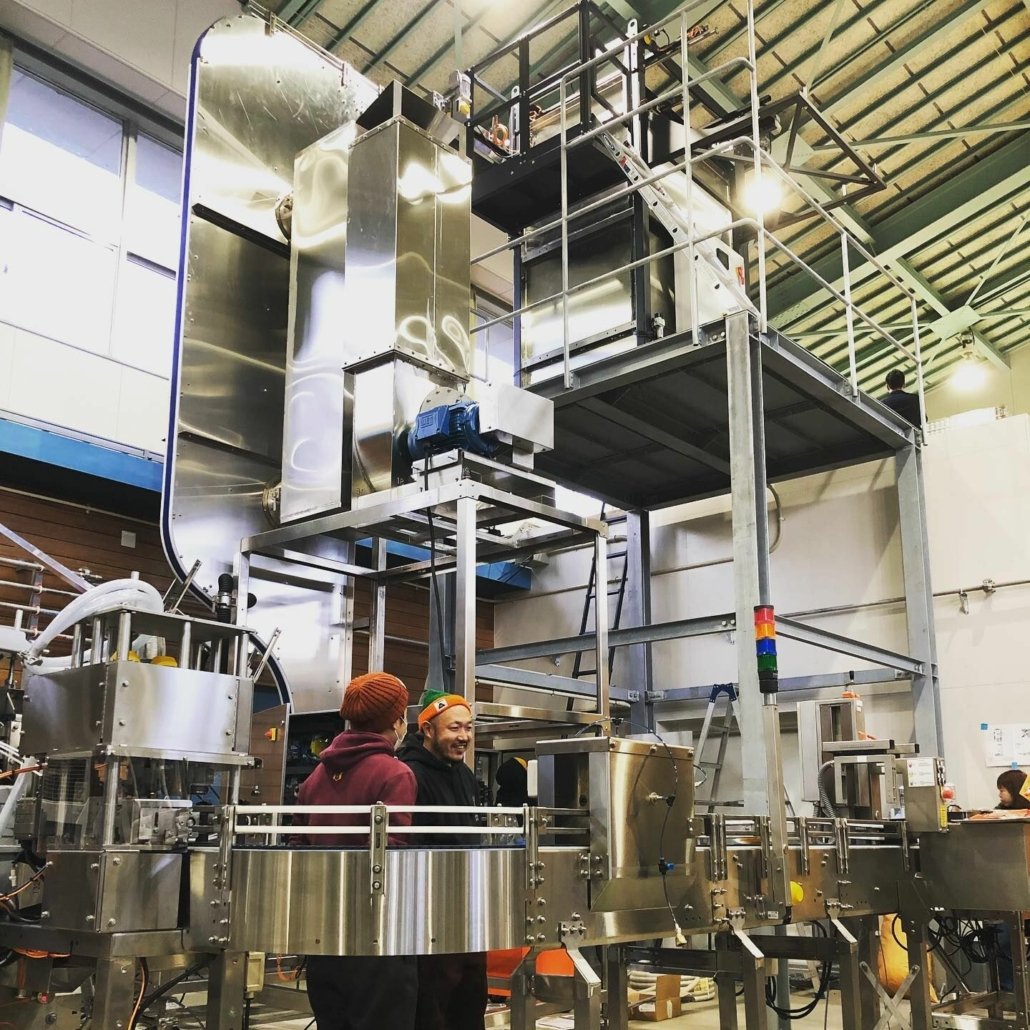
FAQ
| Question | Answer |
|---|---|
| What size fermentor should I get? | Choose a fermentor that’s 25-30% larger than your batch size to accommodate foam and krausen. |
| Can I use a fermentor for other beverages? | Yes! Fermentors can also be used for cider, wine, and kombucha. |
| How do I clean a fermentor? | Use a brewery-grade cleaner and sanitize thoroughly before each use. |
| What’s the difference between primary and secondary fermentation? | Primary is for active fermentation; secondary is for conditioning and clarifying the beer. |
| How long does fermentation take? | It varies by beer style but typically takes 1-2 weeks for primary fermentation. |
Frequently Asked Questions (FAQ)
1) What pressure rating should a commercial Beer Fermentor have?
- For unitanks and conicals, look for certified pressure ratings of 15–30 psi (103–207 kPa) with properly sized PRVs and documented hydrostatic tests. This enables spunding, natural carbonation, and safe closed transfers.
2) How much headspace do I need in a Beer Fermentor?
- Plan 15–25% headspace for ales and 20–30% for high-gravity or heavily dry-hopped beers to accommodate kräusen and hop creep CO2.
3) 304 vs. 316 stainless: which is better for Beer Fermentors?
- 304 SS is standard and cost-effective; 316 SS offers better resistance to chlorides and caustic/sanitizer exposure. Choose 316 for sour programs, saline water, or aggressive CIP regimes.
4) Do I need insulation and glycol jackets on my Beer Fermentor?
- Yes for commercial use. PU-insulated, dimple-jacketed fermentors improve temperature stability (±0.2–0.5°C), reduce glycol load, and cut energy use versus uninsulated tanks or coils.
5) What sanitary design details matter most?
- Smooth, passivated interiors (Ra ≤ 0.8 μm), full-coverage CIP spray ball, sanitary TIG welds, angled bottom with racking arm, tri-clamp ports, and shadowless manway. These reduce contamination risk and cleaning time.
2025 Industry Trends: Selecting and Operating Beer Fermentors
- Pressure fermentation mainstream: spunding (8–15 psi) to shorten tank time and improve aroma retention.
- Oxygen-avoidance by design: closed dry-hop dosers, purgeable carb stones, and low-DO racking arms now standard on mid-tier unitanks.
- Smart fermentation control: integrated temp/pressure sensors with mobile alerts and PLC logic for predictive VDK rests.
- Sustainability: thicker insulation, right-sized glycol, and heat recovery from crash cooling reduce energy/bbl 10–20%.
- Safety and compliance: insurers increasingly require fixed CO2 monitoring and documented PRV testing schedules.
Beer Fermentor Selection Benchmarks (2025)
| Criterion | Home/Nano (5–10 gal to 3 bbl) | Small Craft (5–15 bbl) | Regional (30–120 bbl) | Notes/Sources |
|---|---|---|---|---|
| Preferred material | Stainless or PET conical | 304 SS jacketed conical | 304/316 SS jacketed unitank | BA/MBAA guidance |
| Pressure rating | 10–15 psi | 15–30 psi | 15–45 psi | Verify PRV and hydrotest certs |
| Temperature control | Coil or chamber | Dual-zone jackets | Multi-zone jackets, PU insulation | ASBC/MBAA |
| DO control features | Closed transfer optional | Standard: CIP, closed hop doser | Standard: DO at package <50 ppb | BA Packaging resources |
| Typical unit cost (USD) | $200–$1,200 | $6,000–$22,000 per FV (7–15 bbl) | $30,000–$120,000 per tank | Supplier catalogs (SS Brewtech, Spike, Alpha, Lehui) |
References:
- Brewers Association technical resources: https://www.brewersassociation.org
- Master Brewers Association of the Americas (MBAA) Technical Quarterly: https://www.mbaa.com
- American Society of Brewing Chemists (ASBC): https://www.asbcnet.org
Latest Research Cases
Case Study 1: Pressure-Capable Unitanks Improve Shelf Life (2025)
Background: A 10 bbl brewery reported hop aroma fade and high package DO using non-pressurizable fermentors.
Solution: Upgraded to jacketed, pressure-rated unitanks with spunding valves, purgeable carb stones, and a closed dry-hop doser; implemented closed transfers.
Results: Package DO fell from 120–160 ppb to 30–45 ppb; shelf-life sensory stability extended by ~4 weeks; tank turns improved by 8–10% due to controlled pressure fermentation.
Case Study 2: Predictive Temperature Control Reduces VDK Rest Variability (2024)
Background: A regional producer (60–90 bbl FVs) had inconsistent diacetyl rest timing.
Solution: Added inline temperature and pressure sensors tied to PLC logic with predictive VDK rest triggers; calibrated jackets for ±0.2°C stability.
Results: VDK rest time decreased by 18–24 hours; off-flavor incidents dropped 35%; energy intensity lowered by 6–8%.
Expert Opinions
- Dr. Tom Shellhammer, Professor of Fermentation Science, Oregon State University
Key viewpoint: “A pressure-capable, oxygen-tight Beer Fermentor with closed transfer is as critical to hop aroma retention as hop selection itself.” - Ashton Lewis, Brewing Scientist and MBAA contributor
Key viewpoint: “Sanitary welds, full CIP coverage, and proper racking arms save labor and prevent flavor instability—cheap tanks often cost more over time.” - Katie Wallace, Sustainability leader in craft brewing
Key viewpoint: “Insulated, jacketed fermentors paired with right-sized glycol systems deliver immediate utility savings and help meet tightening environmental targets.”
Practical Tools/Resources
- Brewers Association: cellar best practices, oxygen control, tank safety
https://www.brewersassociation.org - MBAA Technical Quarterly: fermentor design, CIP validation, pressure fermentation
https://www.mbaa.com - ASBC Methods: DO measurement, VDK analysis, fermentation monitoring
https://www.asbcnet.org - Yeast and fermentation calculators (pitch rate, growth)
https://www.whitelabs.com | https://www.lallemandbrewing.com - Manufacturer spec libraries (pressure ratings, jacket zones, PRV sizing)
Suppliers: SS Brewtech, Spike Brewing, Alpha Brewing Ops, Lehui
SEO note: Internally link to pages targeting “Beer Fermentor,” “pressure-capable unitanks,” “closed transfer systems,” and “glycol system sizing.”
Last updated: 2025-08-28
Changelog: Added 5 FAQs; 2025 fermentor trends with benchmark table; two case studies; expert viewpoints; and vetted tools/resources focused on choosing and using a Beer Fermentor
Next review date & triggers: 2026-02-01 or earlier if BA/MBAA release new oxygen control guidance, major supplier spec changes occur, or pricing shifts impact fermentor selection ROI
Share this entry
Interested in learning more about Brewing Systems including additional details and pricing information? Please use the form below to contact us!
YOLONG BREWERY EQUIPMENT FAQS
- Commercial Brewery / Craft Brewery / Microbrewery / Nanobrewery
- What is The Difference Between Craft Beer and Industrial Beer?
- The Bespoke Differences In Custom Brewing Systems
- Everything You Need to Know About Kettle Souring
- How to Choose Brewing Equipment for Your business?
- How To Choose The-Best Partner To Build Your Commercial Microbrewing System?
- Two Detection Sensors That You Need To Use In Your Brewhouse System
- Remote Control Applications in Brewing Equipment/How does it work?
- How To Clean Your Brand New Brewery Tanks?

